Leanne Dillard has always loved puzzles, and her work as an associate professor and an Alabama Cooperative Extension System specialist is like one big puzzle.
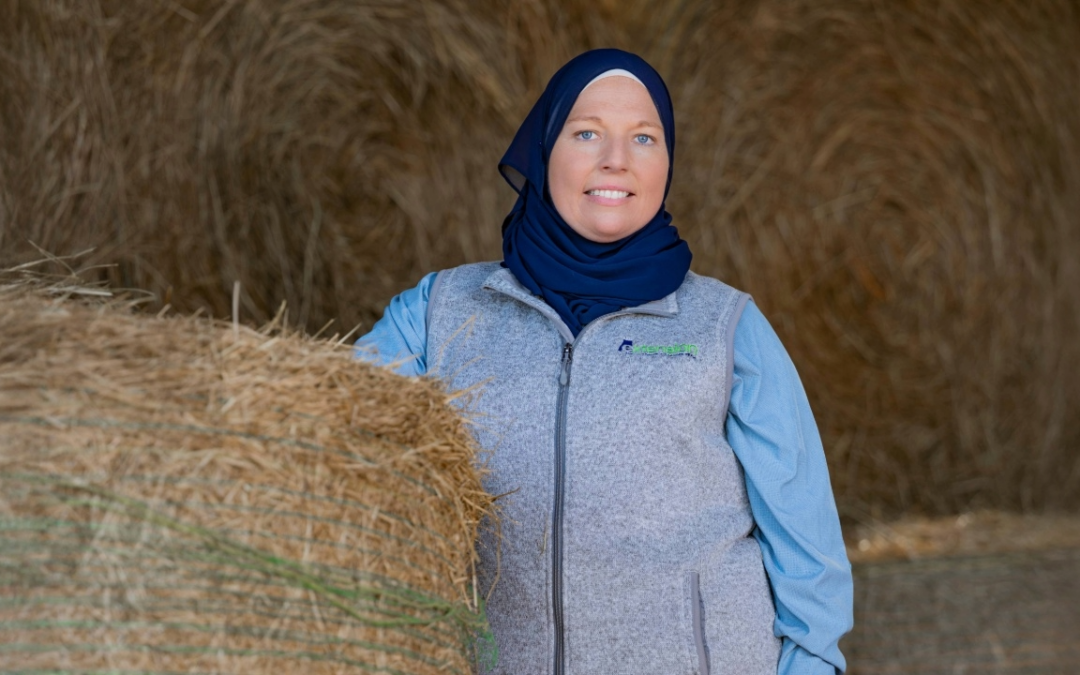

Leanne Dillard has always loved puzzles, and her work as an associate professor and an Alabama Cooperative Extension System specialist is like one big puzzle.
Cotton is undoubtedly one of the most recognizable plants in the world, with its heart-shaped leaves and branches that explode into powder-white fruit. But it’s also one of the more understudied field crops. “Previously, it was unclear where and which specific...
From the Coastal Plain to the Black Belt, Alabama cattle producers are utilizing forage systems to their advantage to meet the challenges of modern agriculture. Alabama ranks 17th nationally in beef cattle, according to the Alabama Cattlemen’s Association. Alabama...
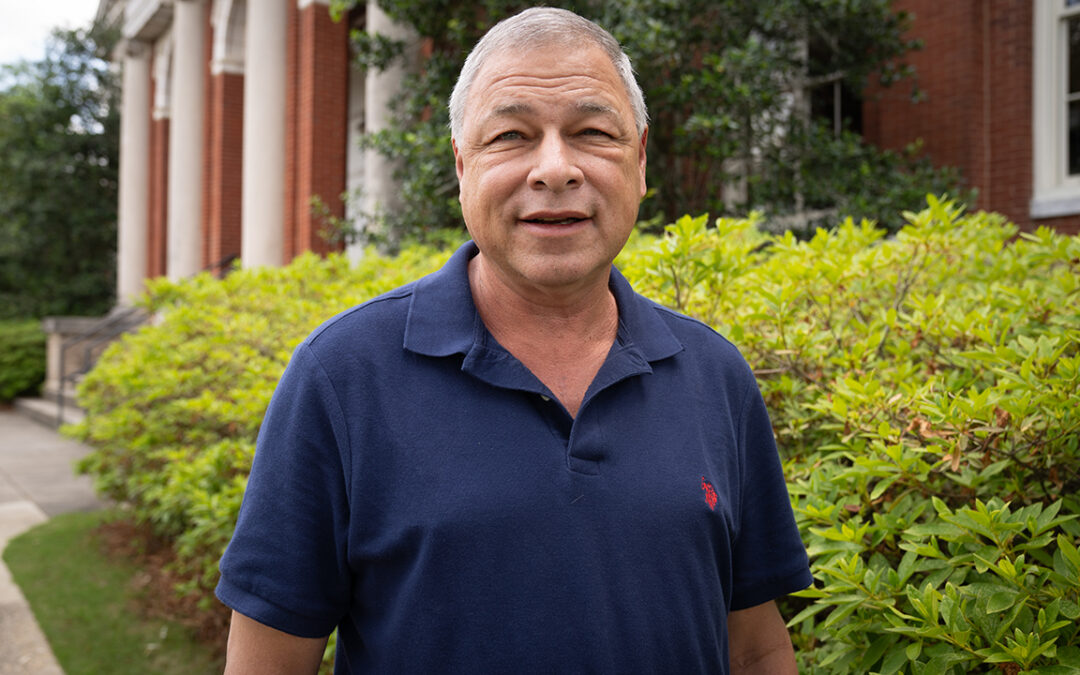
William Batchelor has been tapped as the new director of the Auburn University Water Resources Center, effective immediately. As director, he will lead a team of...
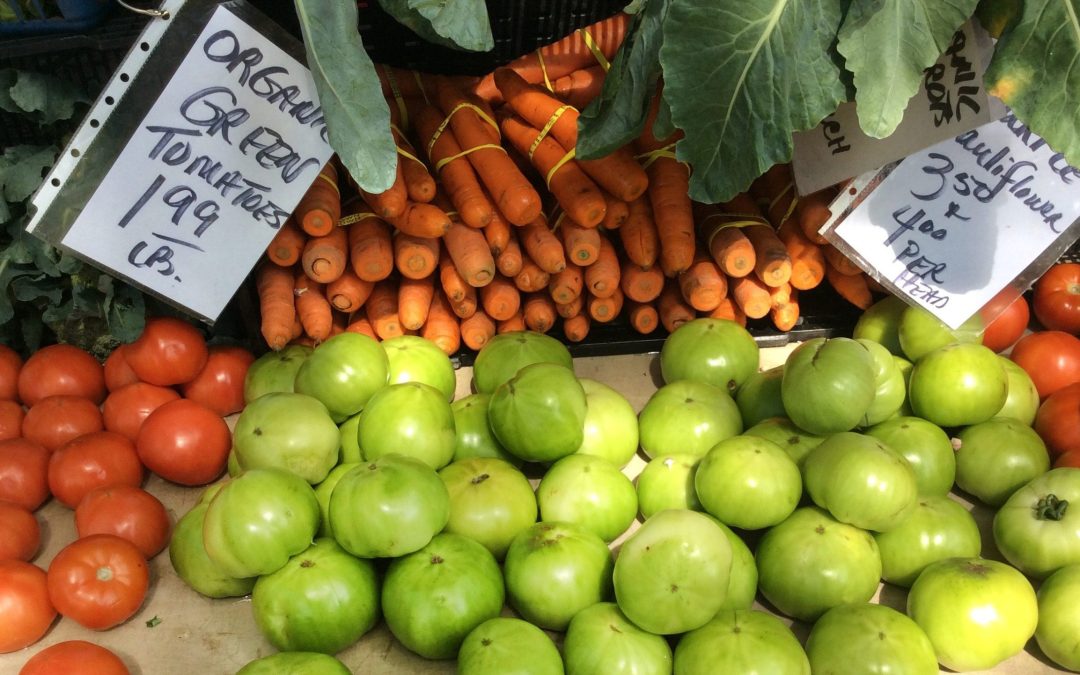
A recent study conducted by agricultural economists through the Alabama Agricultural Experiment Station examined consumers’ willingness to pay a premium for organic...
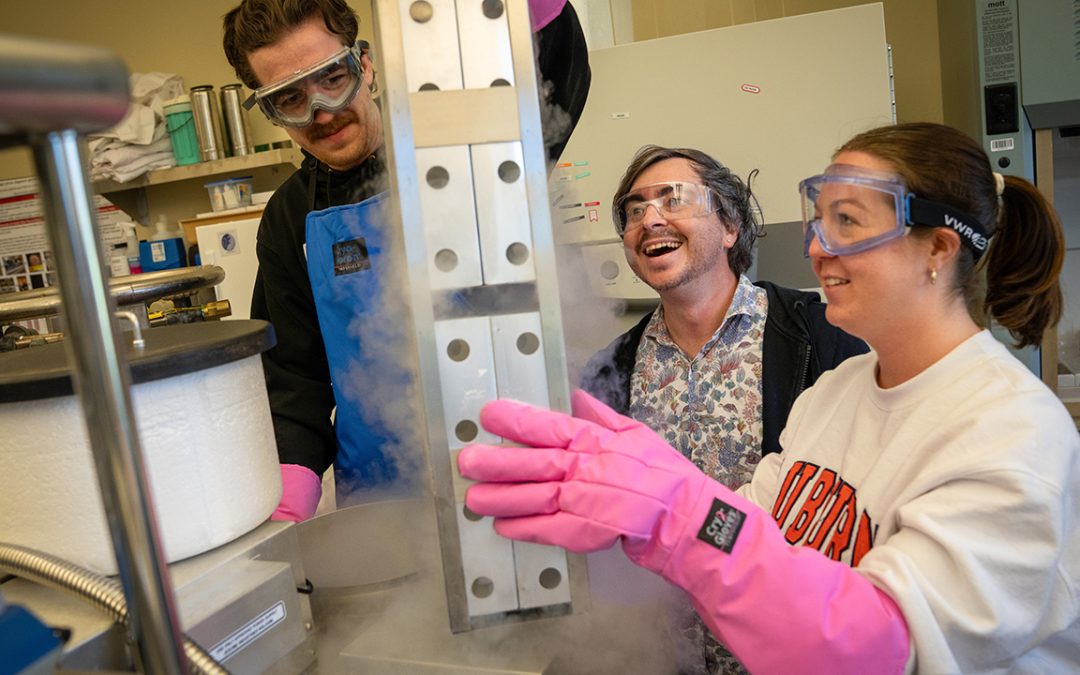
Better breeding ability would make catfish farming more efficient and profitable The $437 million U.S. catfish industry is in need of better genetic and breeding...
by PAUL HOLLISA quality replacement heifer is the genetic building block for any cow herd and the key to profitability for cattle producers. But proper development requires many complex management decisions, along with adequate land and facilities.The Sand Mountain...
by DAVID REARDONDavid Weaver, one of the best known and longest tenured professors in Auburn’s College of Agriculture, is practically a walking encyclopedia of agronomy. This is obvious to the students and colleagues who have had the opportunity to ask him a...
A team of Auburn University research entomologists probing the molecular processes that lead to insecticide resistance in mosquitoes has determined that a family of signaling molecules known as G-protein-coupled receptors controls the genes associated with resistance...
by PAUL HOLLISAvian influenza—commonly known as bird flu or AIV—has proven to be a serious threat to poultry flocks worldwide, making it all the more important that researchers learn how it spreads to poultry farms.That’s the aim of continuing work by Auburn...
by PAUL HOLLISThe sequencing of the channel catfish genome—considered one of the major milestones in the annals of Auburn University research—has been detailed in an article published in the June 2 issue of Nature Communications, an international multidisciplinary...
Alabama Cooperative Extension SystemAUBURN, Ala.—Golden fields lined rural highways in central and northern parts of the state this spring as producers add canola to crop rotations.Alabama Extension Crop Specialist Dennis Delaney said farmers are incorporating the...
AUBURN, Ala.—Alabama’s largest agricultural industry is seeing construction begin this week on a comprehensive, state-of-the-art research and teaching facility at Auburn University. The university’s Department of Poultry Science and National Poultry Technology Center...
AUBURN, Ala.— Six research projects that aim to encourage and advance academic collaborations between Alabama Agricultural Experiment Station researchers at Auburn University and scientists at Cuban agricultural universities and research centers are underway, funded...
AUBURN, Ala.—The Department of Animal Sciences at Auburn University will host its 2016 Beef Cattle Conference Saturday, Aug. 13, at the Ham Wilson Livestock Arena on the Auburn campus. The conference, themed “Playing above the Curve: Innovations for the Cow-Calf...

In a new study published in the May 16 issue of the Journal of Public Health, Auburn University and Cornell University researchers found that product placement and packaging had a significant impact on what clients selected in a New York State food pantry.
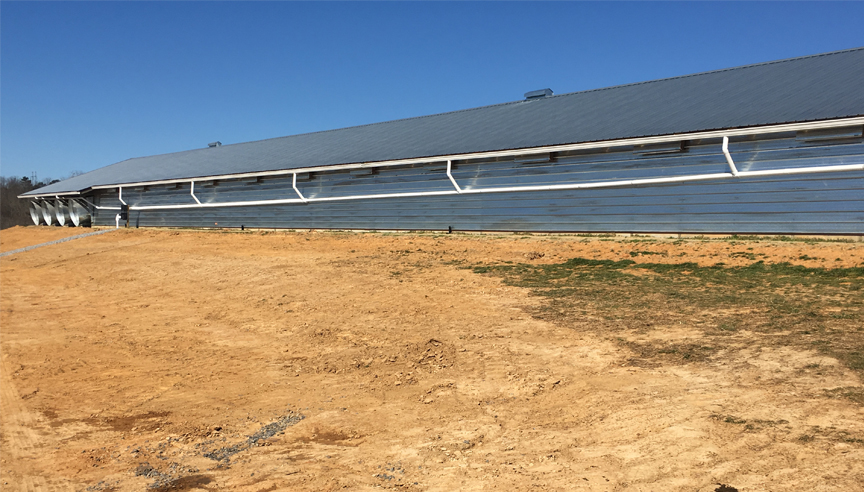
Raising broiler chickens takes water—a lot of water. But rainwater harvesting could substantially reduce Alabama poultry growers’ dependence on municipal water sources or well water, reduce growers’ annual water bill by as much as $16,000 or more, and pay for itself in as few as four to five years.
by RON SMITHThe first major insect we focus on during the cotton production season is thrips. Many have heard and read in recent years about the resistance of thrips to our available seed treatments.Where are we with this issue in Alabama?Just for background, let's...
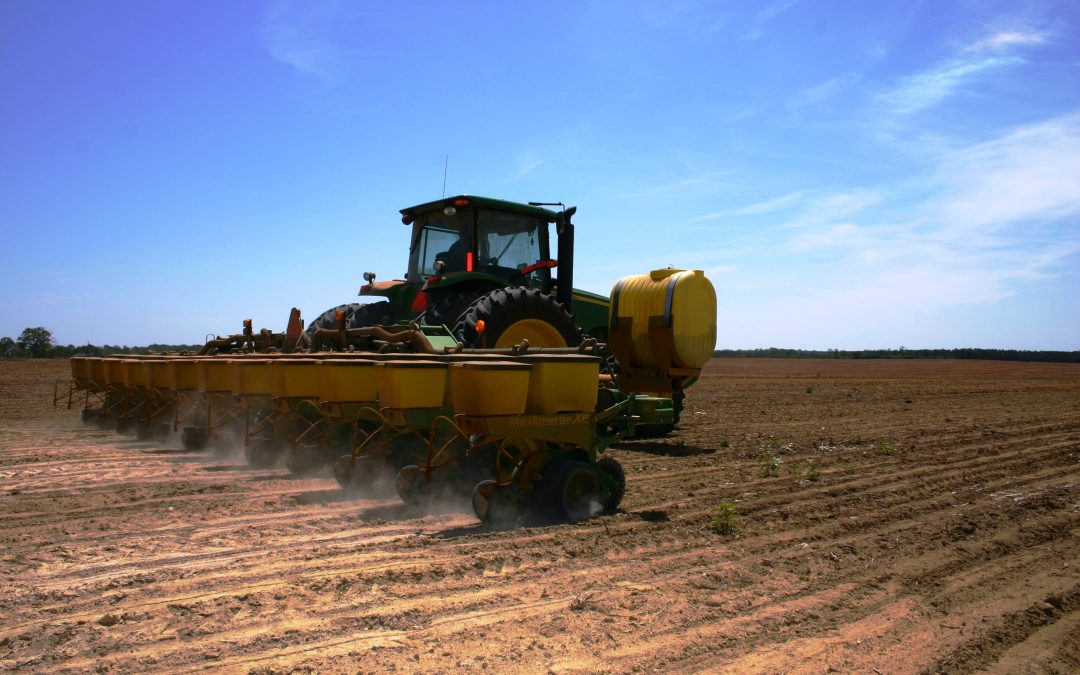
Farmers throughout Alabama and the Southeast are gearing up for another spring planting season, with expectations running high for more favorable weather conditions and improved commodity prices compared to this past year. A sure sign that it’s planting time is the release of the USDA Prospective Plantings Report in late March—the first indication of what farmers are considering for the coming season.
by PAUL HOLLIS Imagine a day when a farmer can stand in a field, wave a handheld device over a tomato and detect pathogens immediately, potentially saving lives and billions of dollars. That day might not be far off, thanks to research being conducted by the Alabama...
AUBURN, Ala.—Auburn University Alumni Professor and undergraduate program coordinator Oladiran Fasina has been named interim associate dean for research in the College of Agriculture and interim assistant director of the Alabama Agricultural Experiment Station...
Part 2by PAUL HOLLISWhile crops research being conducted by the Alabama Agricultural Experiment Station (AAES) is attempting to attain high yields with maximum inputs, economics also are being considered, with an eye toward ensuring cost efficiency for farmers.“We...
by PAUL HOLLISAlabama farmers now have new options available when it comes to sampling their soils, including a Soil Quality Index (SQI) and technology that allows for grid sampling.Charles Mitchell, a professor in the College of Agriculture Crop, Soil and...
AUBURN, Ala.— Auburn University alumnus Paul Patterson, who has served as associate dean for instruction in Auburn’s College of Agriculture for almost seven years, has been named dean of the college and director of the Alabama Agricultural Experiment Station,...
Auburn University entomologist Arthur Appel, who most recently served as interim dean of the College of Agriculture and interim director of the Alabama Agricultural Experiment Station, has been recognized as a fellow of the American Association for the Advancement of...
Part 1 by PAUL HOLLIS “How high can crop yields go? Researchers at Auburn University’s Alabama Agricultural Experiment Station intend to find out just that with a new initiative that aims to replicate the outstanding yields being achieved by some of the nation’s top...
Alabama Cooperative Extension System As farmers were planning this year’s crop, Alabama Cooperative Extension professionals and Auburn University College of Agriculture faculty were working ahead to determine the best varieties for farmers across the state....
by PAUL HOLLISA quality replacement heifer is the genetic building block for any cow herd and the key to profitability for cattle producers. But proper development requires many complex management decisions, along with adequate land and facilities.The Sand Mountain...
by DAVID REARDONDavid Weaver, one of the best known and longest tenured professors in Auburn’s College of Agriculture, is practically a walking encyclopedia of agronomy. This is obvious to the students and colleagues who have had the opportunity to ask him a...
A team of Auburn University research entomologists probing the molecular processes that lead to insecticide resistance in mosquitoes has determined that a family of signaling molecules known as G-protein-coupled receptors controls the genes associated with resistance...
by PAUL HOLLISAvian influenza—commonly known as bird flu or AIV—has proven to be a serious threat to poultry flocks worldwide, making it all the more important that researchers learn how it spreads to poultry farms.That’s the aim of continuing work by Auburn...
by PAUL HOLLISThe sequencing of the channel catfish genome—considered one of the major milestones in the annals of Auburn University research—has been detailed in an article published in the June 2 issue of Nature Communications, an international multidisciplinary...
Alabama Cooperative Extension SystemAUBURN, Ala.—Golden fields lined rural highways in central and northern parts of the state this spring as producers add canola to crop rotations.Alabama Extension Crop Specialist Dennis Delaney said farmers are incorporating the...
AUBURN, Ala.—Alabama’s largest agricultural industry is seeing construction begin this week on a comprehensive, state-of-the-art research and teaching facility at Auburn University. The university’s Department of Poultry Science and National Poultry Technology Center...
AUBURN, Ala.— Six research projects that aim to encourage and advance academic collaborations between Alabama Agricultural Experiment Station researchers at Auburn University and scientists at Cuban agricultural universities and research centers are underway, funded...
AUBURN, Ala.—The Department of Animal Sciences at Auburn University will host its 2016 Beef Cattle Conference Saturday, Aug. 13, at the Ham Wilson Livestock Arena on the Auburn campus. The conference, themed “Playing above the Curve: Innovations for the Cow-Calf...

In a new study published in the May 16 issue of the Journal of Public Health, Auburn University and Cornell University researchers found that product placement and packaging had a significant impact on what clients selected in a New York State food pantry.

Raising broiler chickens takes water—a lot of water. But rainwater harvesting could substantially reduce Alabama poultry growers’ dependence on municipal water sources or well water, reduce growers’ annual water bill by as much as $16,000 or more, and pay for itself in as few as four to five years.
by RON SMITHThe first major insect we focus on during the cotton production season is thrips. Many have heard and read in recent years about the resistance of thrips to our available seed treatments.Where are we with this issue in Alabama?Just for background, let's...

Farmers throughout Alabama and the Southeast are gearing up for another spring planting season, with expectations running high for more favorable weather conditions and improved commodity prices compared to this past year. A sure sign that it’s planting time is the release of the USDA Prospective Plantings Report in late March—the first indication of what farmers are considering for the coming season.
by PAUL HOLLIS Imagine a day when a farmer can stand in a field, wave a handheld device over a tomato and detect pathogens immediately, potentially saving lives and billions of dollars. That day might not be far off, thanks to research being conducted by the Alabama...
AUBURN, Ala.—Auburn University Alumni Professor and undergraduate program coordinator Oladiran Fasina has been named interim associate dean for research in the College of Agriculture and interim assistant director of the Alabama Agricultural Experiment Station...
Part 2by PAUL HOLLISWhile crops research being conducted by the Alabama Agricultural Experiment Station (AAES) is attempting to attain high yields with maximum inputs, economics also are being considered, with an eye toward ensuring cost efficiency for farmers.“We...
by PAUL HOLLISAlabama farmers now have new options available when it comes to sampling their soils, including a Soil Quality Index (SQI) and technology that allows for grid sampling.Charles Mitchell, a professor in the College of Agriculture Crop, Soil and...
AUBURN, Ala.— Auburn University alumnus Paul Patterson, who has served as associate dean for instruction in Auburn’s College of Agriculture for almost seven years, has been named dean of the college and director of the Alabama Agricultural Experiment Station,...
Auburn University entomologist Arthur Appel, who most recently served as interim dean of the College of Agriculture and interim director of the Alabama Agricultural Experiment Station, has been recognized as a fellow of the American Association for the Advancement of...
Part 1 by PAUL HOLLIS “How high can crop yields go? Researchers at Auburn University’s Alabama Agricultural Experiment Station intend to find out just that with a new initiative that aims to replicate the outstanding yields being achieved by some of the nation’s top...
Alabama Cooperative Extension System As farmers were planning this year’s crop, Alabama Cooperative Extension professionals and Auburn University College of Agriculture faculty were working ahead to determine the best varieties for farmers across the state....